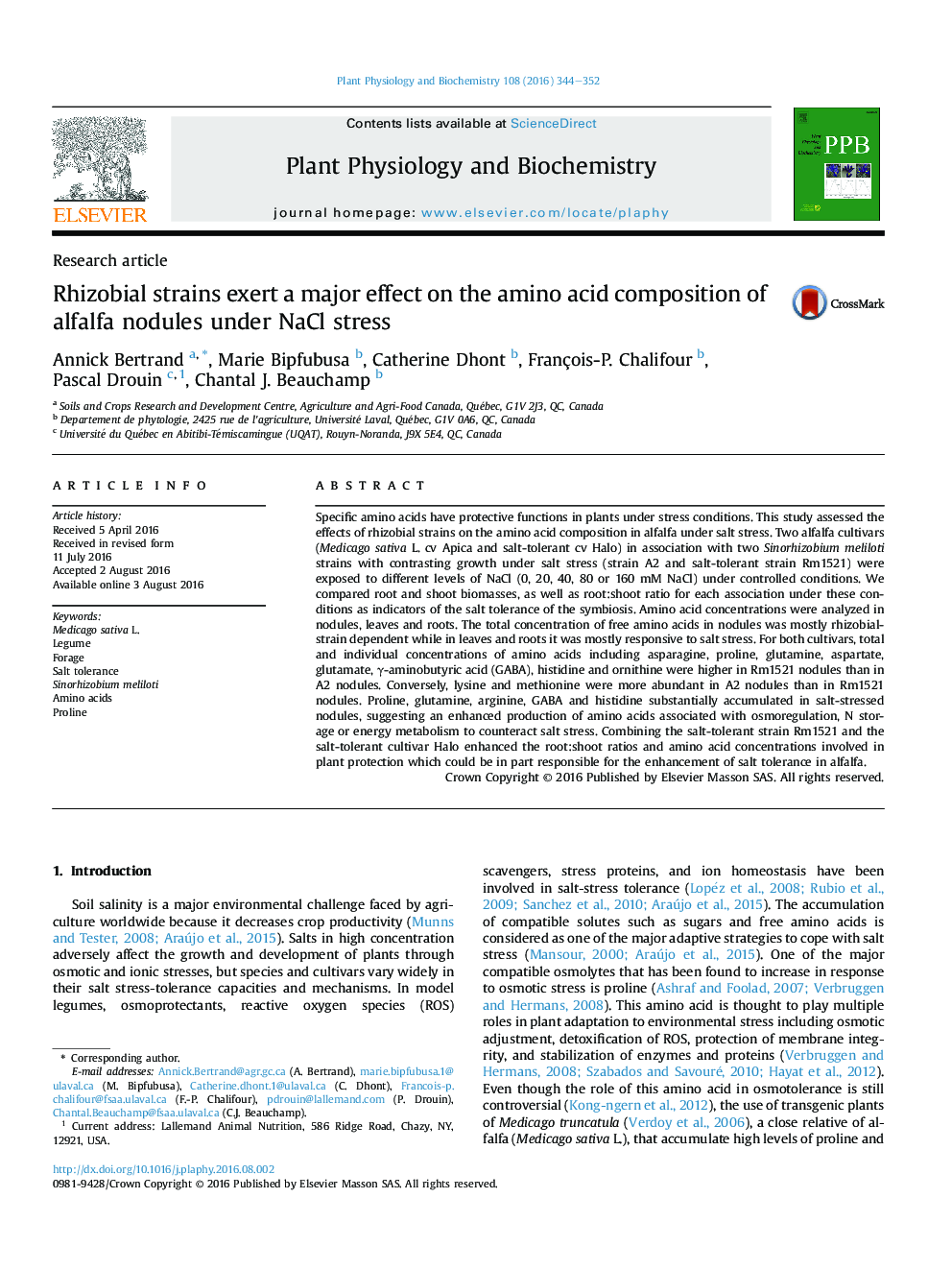| کد مقاله | کد نشریه | سال انتشار | مقاله انگلیسی | نسخه تمام متن |
|---|---|---|---|---|
| 2014722 | 1541913 | 2016 | 9 صفحه PDF | دانلود رایگان |

• Amino acid accumulation in salt-stressed nodules is Sinorhizobium-strain dependent.
• Salt stress is the major driving factor for amino acid accumulation in roots and leaves.
• Amino acids with protective functions accumulated in salt tolerant symbioses.
• Proline is more abundant in salt-stressed nodules of tolerant-than of sensitive-symbioses.
• Combining both salt-tolerant cultivars and rhizobial strains improves alfalfa salt tolerance.
Specific amino acids have protective functions in plants under stress conditions. This study assessed the effects of rhizobial strains on the amino acid composition in alfalfa under salt stress. Two alfalfa cultivars (Medicago sativa L. cv Apica and salt-tolerant cv Halo) in association with two Sinorhizobium meliloti strains with contrasting growth under salt stress (strain A2 and salt-tolerant strain Rm1521) were exposed to different levels of NaCl (0, 20, 40, 80 or 160 mM NaCl) under controlled conditions. We compared root and shoot biomasses, as well as root:shoot ratio for each association under these conditions as indicators of the salt tolerance of the symbiosis. Amino acid concentrations were analyzed in nodules, leaves and roots. The total concentration of free amino acids in nodules was mostly rhizobial-strain dependent while in leaves and roots it was mostly responsive to salt stress. For both cultivars, total and individual concentrations of amino acids including asparagine, proline, glutamine, aspartate, glutamate, γ-aminobutyric acid (GABA), histidine and ornithine were higher in Rm1521 nodules than in A2 nodules. Conversely, lysine and methionine were more abundant in A2 nodules than in Rm1521 nodules. Proline, glutamine, arginine, GABA and histidine substantially accumulated in salt-stressed nodules, suggesting an enhanced production of amino acids associated with osmoregulation, N storage or energy metabolism to counteract salt stress. Combining the salt-tolerant strain Rm1521 and the salt-tolerant cultivar Halo enhanced the root:shoot ratios and amino acid concentrations involved in plant protection which could be in part responsible for the enhancement of salt tolerance in alfalfa.
Journal: Plant Physiology and Biochemistry - Volume 108, November 2016, Pages 344–352